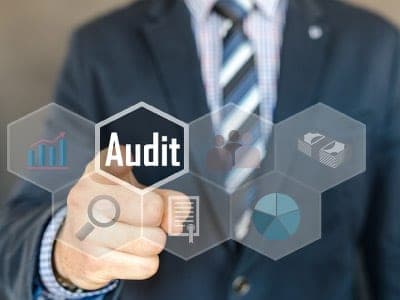This post is also available in:
![]() 繁體中文 (Chinese (Traditional))
繁體中文 (Chinese (Traditional)) ![]() 简体中文 (Chinese (Simplified))
简体中文 (Chinese (Simplified))
Auditors in Hong Kong – An Overview of Hong Kong’s Financial Reporting
 Hong Kong is home to major businesses. To ensure ongoing compliance with the law, that’s where auditors in Hong Kong come in. Auditors must be practising CPAs.
Hong Kong is home to major businesses. To ensure ongoing compliance with the law, that’s where auditors in Hong Kong come in. Auditors must be practising CPAs.
What Is Auditing in Hong Kong?
Auditing is when your company undergoes an official verification and review of the business’s financial accounts. This is done by third-party auditors in Hong Kong to obtain a true and accurate representation without bias. Your Hong Kong company’s financial statements, payable taxes and profit are subject will be subjected to audits.
Who Are the Auditors in Hong Kong?
An audit can be performed by an auditor licensed as a Hong Kong Certified Public Accountant (CPA). Your chosen CPA will perform an audit of your accounts and submit them to the Hong Kong Inland Revenue Department (IRD). The IRD will then review the work of the CPA for any inconsistencies or discrepancies. Any suspicious records may be flagged and the CPA may need to follow up. Supporting documents may be required.
It is highly recommended that you find a suitable, qualified and professional CPA as your auditor in Hong Kong. Under the Professional Accountants Ordinance (PAO), Section 28A(5)(a), a CPA must obtain “approved accounting experience” before they can be issued with a Practicing Certificate (PC). Under the current PAO regulations, the applicant must have a minimum of 4-years full-time experience. This experience needs to be approved accounting experience, and must have taken place at:
- The office of a Hong Kong PC holder.
- Any person(s) practising public accountancy. This must have taken place under the following jurisdiction:
- An accounting body accepted by the Council under PAO’s Section 24(1A).
- An accounting body with reciprocal membership agreement, or mutual recognition agreement.
The 4-year minimum experience can be reduced to 30 months. This is applicable of all experience is garnered after qualifying.
Who Are the Hong Kong Institute of Certified Public Accountants (HKCPA)?
The HKCPA is the only one authorised by law who can register and grant practising certificates in Hong Kong. To be a certified public accountant, you must go through the HKCPA.
At the moment, HKCPA has 43,000 members. All members are entitled to the CPA designation, and can be referred to as a “certified public accountant”. HKCPA also has 18,000 registered students under its organisation.
What Are the Audit and Tax Requirements in Hong Kong?
As per the Hong Kong Companies Ordinance (CO), all companies must undergo an annual audit by a practising CPA. This is applicable to all business’s incorporated in Hong Kong, including those commencing business locally or abroad.
What Do Auditors in Hong Kong Do?
Auditors in Hong Kong are responsible for reviewing balance sheets, income statements and general ledgers of business transactions. These statements will be reviewed together with any supporting documents. Auditors would then put forth their opinion regarding the accuracy of these documents. It is the auditor’s responsibility to acquire sufficient documentation for each company they audit.
What Are the Audit Exemptions for Dormant Companies in Hong Kong?
As per Hong Kong law, dormant companies can be exempted from complying with certain requirements. This will allow the dormant company to be retained with minimal costs incurred in maintenance. A private company in Hong Kong may be declared dormant by submitting the required documents to the Registrar. It must also pass a special relevant resolution, as per Section 344A (Hong Kong Companies Ordinance).
Auditors in Hong Kong may apply for an audit exemption if the company is dormant. A dormant company is classified as one with limited to no substantial accounting transaction throughout the financial year. This means that the company must not have any entries in its accounting records, except for certain specified transactions which are allowed.

If an Auditor in Hong Kong Resigns, What Do They Need to Do?
The outgoing auditor must provide a “statement of circumstance”. This statement is connected to the termination or resignation of the auditor. The resigning auditor must also provide a copy of this statement to the Registrar for record purposes. As per the new CO, the auditor responsibilities regarding the statement has been extended. Cases of resignation to removal from office must be included. Auditors who are retiring and not reappointed are included under the new CO too.
If there are no circumstances associated with the resignation or termination, there is no need to deliver such a statement to the Registrar.


